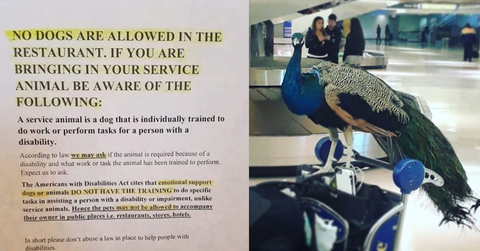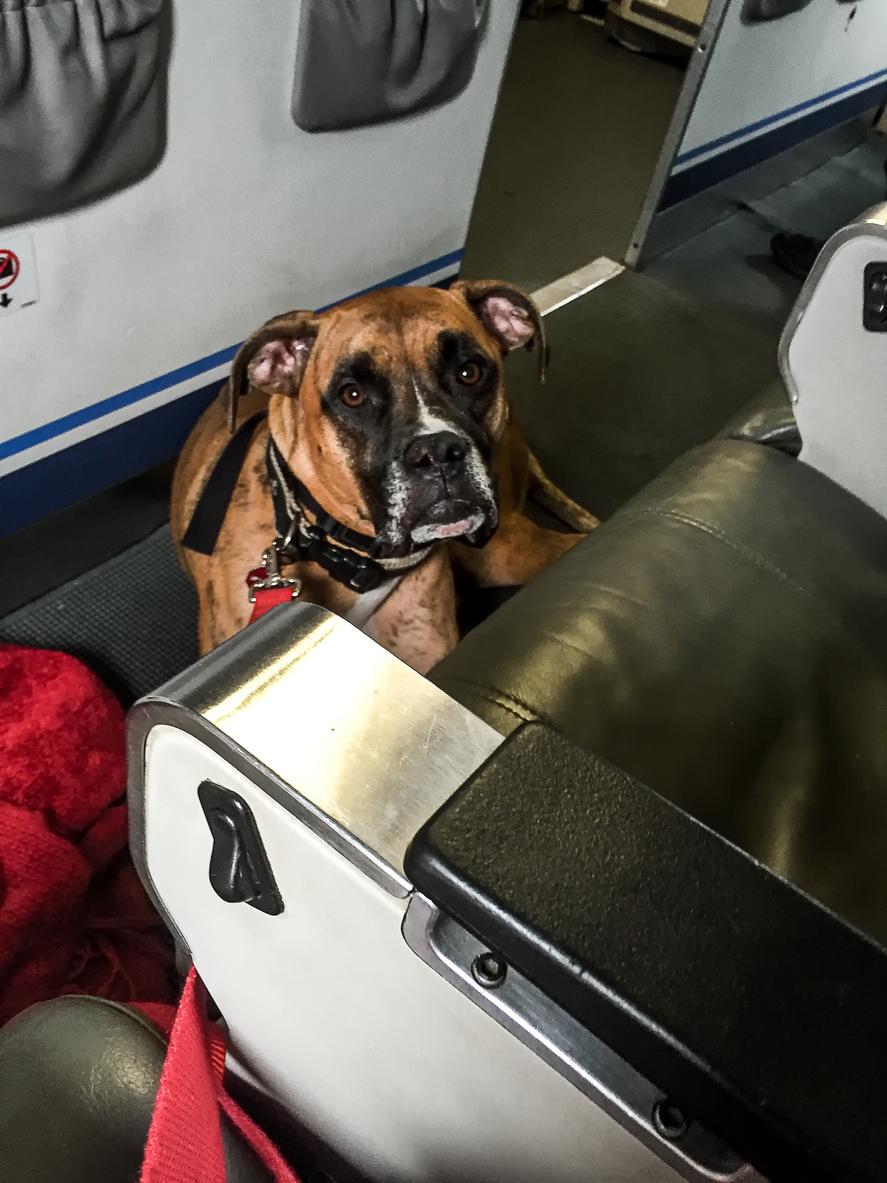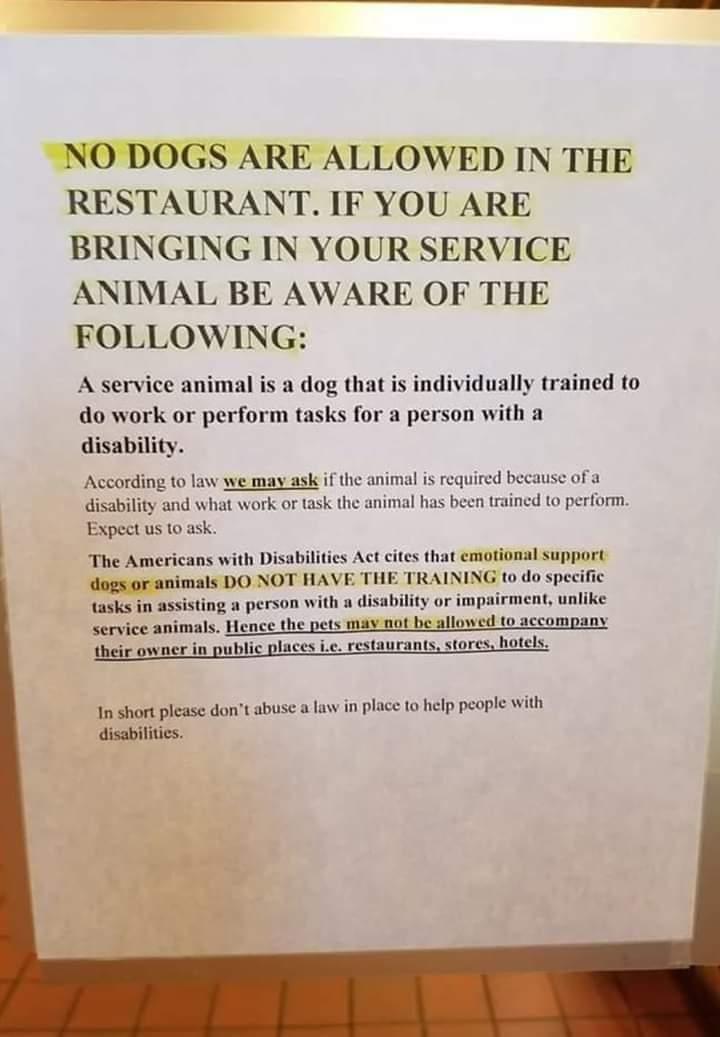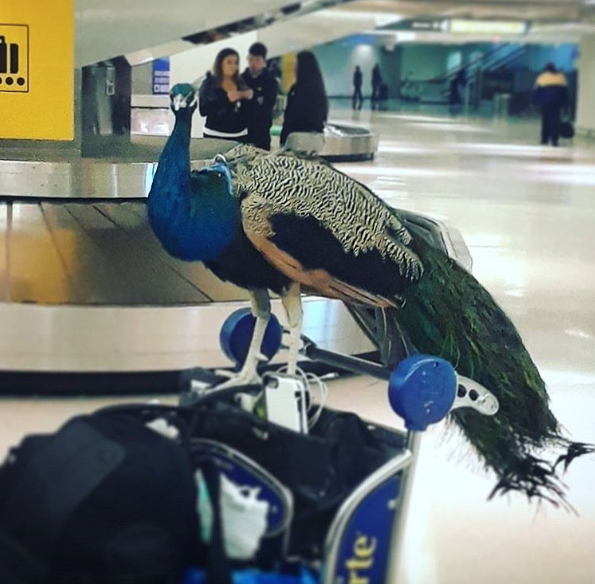Restaurant Explains Why They Don't Allow Emotional Support Animals
Updated Oct. 17 2019, 5:22 p.m. ET

It is no secret that people have started to take advantage of the idea of "emotional support animals" to get their pets access to places where they wouldn't normally be allowed, like planes or restaurants. This is not to say there aren't valid reasons for someone to be prescribed an emotional support animal — there definitely are.
But an "emotional support animal" whose purpose is purely to provide comfort to their owner is different from a service animal that has been specifically trained in a skill to protect their owners with medical conditions or disabilities. And one restaurant has decided the distinction between the two has gotten way too blurred. They clarified their position on emotional support animals vs. service animals by posting a notice on their door.
As they write, "a service animal is a dog that is individually trained to do work or perform tasks for a person with a disability." This includes animals like seeing-eye dogs and dogs that are trained to detect seizures in people with epilepsy.
Although an "emotional support animal" might be prescribed by a psychiatrist or another doctor, that doesn't mean the animal is specifically trained to handle a medical issue. And, according to the restaurant, the law states they can ask for proof of the animal's qualifications.
A problem arises with emotional support animals who are allowed in public places like this when the animals aren't even properly trained to be around people. According to The Washington Post, Marlin Jackson was attacked by a supposed "emotional support dog" on a plane ride from Atlanta to San Diego.
The reportedly 50-pound chocolate lab-pointer mix was sitting on its owner's lap instead of on the floor where the dog was supposed to be when it lunged at Marlin and bit him several times in the face and mouth, resulting in 28 stitches and leaving him with permanent scarring.

It is terrible when people use the emotional support animal distinction to get their terribly-behaved pets on flights or into other public spaces where non-working animals aren't permitted. That's obviously not what the system was meant for. And I'm saying this as an animal lover who really believes that if you have a well-behaved animal, you should be allowed to have it in public.
But there's little way to regulate if people are telling the truth when they say their dog is perfectly behaved when they aren't required to be specifically trained for a job.
There's also the problem of people trying to bring other... more exotic animals on board airplanes under the guise of "emotional support."
Remember this peacock, for instance? When airlines started cracking down on the animals they let on planes, emotional support pets like Dexter the peacock were denied permission to board.
People who try to game the system really are ruining it for people with disabilities who rely on their service animals. In March of 2018, Delta Airlines restricted which animals are allowed on flights. They began to require "conformation of animal training" in addition to immunization records and a letter from a doctor or licensed mental health professional prescribing the animal.
According to Delta, there has been an 84 percent spike in animal incidents since 2016. These incidents include "urination / defecation" and "biting." That's not OK!
There are legitimate reasons to have an emotional support animal. People suffering from PTSD often benefit from the comfort of a dog. Not to mention, there are myriad medical issues that can be allayed by being near dogs and other animals. It's just when irresponsible people try to take advantage of the system for their own benefit without having respect for the people around them that we run into problems.

